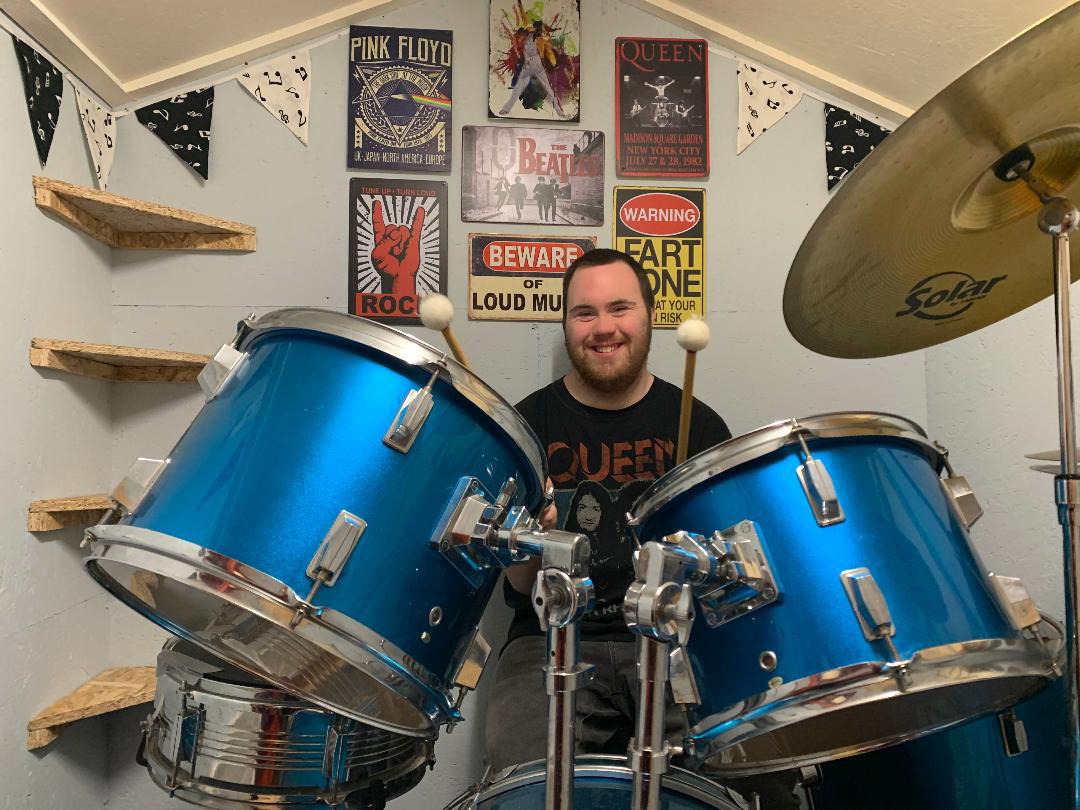The challenges faced by parents and carers whose young people have special educational needs and disabilities (SEND) was highlighted in the recent BBC documentary, “Katie Price: Harvey and Me”, which looked at how the celebrity’s family were coping as Harvey prepared for College.
Home schooling has been a challenge for many families throughout the COVID-19 lockdowns, but for SEND students it can be well-nigh impossible, which is why Henshaws Specialist College in Harrogate has remained open throughout the pandemic.
Joe Husband, who has Downs Syndrome and severe learning disabilities, is one of many students at the College, which works with young people aged from 16 to 25, who need the expert help and routine that the College brings to their lives. His mother, Sally Bagshaw, said: “Joe needs lots of support, with two-to-one support at College. He was at home apart from two days a week during the first part of the year and I could not have managed if my daughter had not been off work at that time. I dread to think now what it would be like if he couldn’t go to College.”
The College has been able to stay open throughout the three lockdowns to date thanks to rigorous protocols put in to protect its vulnerable students, their families, and its staff. It was recently inspected by James Tapster of the NHS’s Deep Cleaning and Advisory Service who described the College’s protocols, procedures and management of the pandemic as “second to none”.
Principal Adrian Sugden said:
It was recognised by the Government from the beginning of the pandemic that education was vital for vulnerable young people and therefore we have been allowed to remain open. It has not been easy, but I am delighted that we have been able to continue to work with many of our students throughout.
When Joe arrived at the College a number of behavioural concerns had been disclosed by his former school. These behavioural problems were detrimental to his quality of life.
Joe, who is 20, returned to College full time in September and has made tremendous progress since then, improving his independence skills and learning to interact with staff and other students, and Sally has seen tremendous improvements in his behaviour.
Sally said:
I used to get a phone call every other day about something he had done -for example he used to set off the fire alarm constantly – but now I can’t remember the last time I got a call.
Joe is absolutely loving College right now. He gets his clothes, shoes and bag ready on an evening. He gets up and dressed in a morning without any prompts and he has never done this before. He tells me what he has done during the day, and again he has never done this.
The staff who work with Joe are amazing – he engages well with them all and he listens to them. He is treated as an adult and he is thriving with all the praise he receives. He has grown into a confident, engaged young man.
The College uses an approach called Positive Behavioural Support, which is a framework for understanding why behaviour happens, then teaches new ways for people to meet their needs. It is an approach that aims to increase quality of life and wellbeing through setting outcomes for the individual which increase happiness and meaningful activities and relationships.
Adrian Sugden said:
Joe’s experiences underline why it is so vital that this type of support is available not just for students but for their families. Being able to attend College is key to helping these young people to live their best lives. I cannot praise the staff, many of whom have their own challenges to cope with in these difficult times, enough for the way they have remained dedicated to their work.







